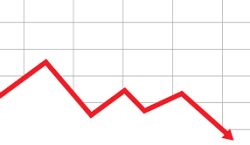

GOVERNMENT’S designated procurement agency, the State Procurement Board (SPB) and the Zimbabwe Power Company (ZPC) — a subsidiary of ZESA Holdings — have been drawn into a scandal involving the awarding of a US$183 million tender to losing bidders, the Financial Gazette can reveal.
Sometime last year, ZESA’s flagship business floated a tender for the installation of a 100 megawatt (MW) solar power station to alleviate the crippling power supply shortages rattling the country.
While the results of the tender declared China Jiangxi Corporation as the winner, a controversial decision was then taken to include two losing bidders namely Intratrek Zimbabwe (Private) Limited — owned by flamboyant Harare businessman, Wicknell Chivayo — and ZTE Corporation without having to re-advertise the tender as required by law.
Although Intratrek and ZTE’s prices as read out at the tender opening meeting were pegged at US$248 million and US$358, 2 million respectively, they were incorporated all the same on condition that they reduce their price to match the US$183 million put forward by China Jiangxi Corporation. Interestingly, the SPB did not consider the other losing bidders namely Lanlake Power (Private) Limited, Afriven Investments (Private) Limited and No.17 Metallurgical Construction (Private) Limited.
Those left out are alleging double-standards and favouritism on the part of SPB and ZPC since they were not given the opportunity to amend their bids for consideration as was done to Intratrek and ZTE. Insiders at the power utility also described the development as a gross violation of tender laws. Despite it being at variance with international best practices, the insiders said the manner in which the tender was handled raised serious ethical questions.
They also fear that the losing bidders may not do a good job, thereby defeating the whole objective behind the floating of the tender. One of the losing bidders has since written to the SPB objecting to being left out in the cold.
The letter was copied to Dzikamai Mavhaire, the Minister of Energy and Power Development and Misheck Sibanda, the chief secretary to the President and Cabinet. The official explanation being given for the inclusion of the two losing bidders is that although the initial tender was for 100MW, the scope of the project was expanded to 300MW.
It is therefore being argued that Intratrek and ZTE had to be accommodated to cater for the additional 200MW that was not part of the advertised tender specifications. Officials say it was decided not to re-advertise the tender in view of the acute electricity shortages and the urgency with which ZPC should rollout the project.
ZPC managing director, Noah Gwariwo, said the authorities have now realised that the magnitude of the power crisis which needs to be addressed urgently and could not contend with any further delays associated with re-tendering. “If we go to tender now, we could adjudicate next year. It’s a time consuming and costly exercise,” said Gwariwo.
Asked why they had not advertised for 300MW when they tendered for a 100MW project last year, Gwariwo said the authorities were not sure of the response at the time.
Chivayo also defended the decision, saying after they lost the bid they filed a court application with the Administrative Court, but had since withdrawn the case after they were incorporated in an expanded 200MW that did not go through another tender.
“We had passed the technical criteria and we had funding and a partner. We also have a farm. Going for another tender does not make sense as it would take another 12 months while women are dying in hospitals while giving birth due to power cuts,” said Chivayo.
“ZANU-PF is under pressure to deliver and this is also a matter of national security.”
Experts, however, said the awarding of tenders to Intratrek and ZTE was illegal as there is no provision for negotiation of tenders with losing bidders in the Procurement Act. They also argue that the revised size of the project would have attracted bigger players if it was re-advertised as a 300MW solar power project. But because it was advertised as a 100MW project, they claim that it only attracted small players and not some of the world’s big players such Huanghe Company CECEP, China Guodian Corporation, Juwi Solar, India’s Bharate Solar Energy, Reliance Power and Gujarat.
“The project is an Engineer, Procure and Construct and is capital intensive and very technical and the big players were going to be attracted by a pre-qualification session such as the one conducted for Kariba and Hwange Power Station expansion projects,” a source said.
“If companies that participated in a tender propose or agree to negotiate their prices downwards from figures as high as US$350 million to US$182 million like in the case of ZTE Limited of China and Intratrek, it is a sure sign that they were quoting for something that they don’t know, or they want to compromise quality to achieve the price cut.”
One of the losing bidders has since written a letter to the SPB, copying it to Mavhaire and Sibanda complaining about the handling of the matter. “The tender was 100MW and awarded to the lowest bidder to specification China Jiangxi International Cooperation…where did the additional 200MW come from? Why was there no separate public tender for 200MW come from?” asked the losing bidder.
“What was the rational of awarding losing bidders Intratrek and ZTE directly? If a company can reduce the price from US$350 million to US$180 million so easily by negotiation, an open tender would arguably help the country to award the most effective solution technically financially.”
newsdesk@fingaz.co.zw